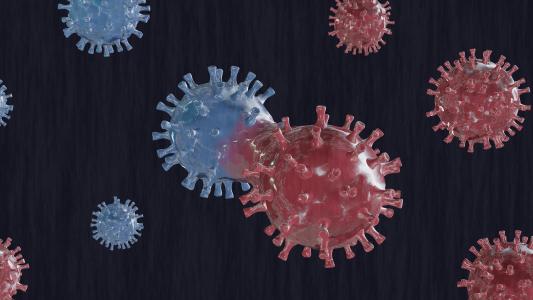Modifying the measles vaccine could stop the coronavirus faster
While coronavirus treatments, new testing kits, and more medical supplies could help in the fight against COVID-19, an effective vaccine could stop the coronavirus altogether by ending its ability to spread.
Now, an international team of researchers is developing a COVID-19 vaccine that uses the measles vaccine as a vehicle to deliver immunity — an approach that could have a number of advantages over a coronavirus vaccine developed from scratch.
Ways to Stop the Coronavirus
Researchers estimate that we’ll need at least 70% of people to have some sort of immunity to the coronavirus before the virus will be unable to spread through the population.
There are two ways we can reach the immunity level needed to stop the coronavirus.
We can wait for enough people to catch and (hopefully) recover from the virus, now armed coronavirus antibodies that should protect them against future infection.
Or we can create a COVID-19 vaccine that would equip a person’s body with coronavirus antibodies without subjecting them to the virus itself.
Both options would take time, but with the second, we wouldn’t need to worry about putting a strain on hospitals or risking people’s lives or health.
Still, once we have an effective coronavirus vaccine, we then need to figure out how to produce and then distribute hundreds of millions of doses.
The three organizations working on this new coronavirus vaccine — the University of Pittsburgh’s Center for Vaccine Research, Austria’s Themis Bioscience, and France’s Pasteur Institute — believe the measles vaccine could help overcome those limitations.
Modifying the Measles Vaccine
In March, the trio received a $4.9 million grant from the Coalition for Epidemic Preparedness Innovations (CEPI) to begin modifying the measles vaccine to provide immunity to the coronavirus.
In recent years, researchers have started exploring the use of modified measles vaccines to inoculate people against diseases for which a specific vaccine doesn’t yet exist, such as Zika or HIV.
Essentially, they use the measles vaccine as a vehicle for delivering other antigens directly to the parts of the immune system already known to trigger antibody production.
Themis Bioscience, specifically, has used the measles vaccine as the basis for vaccine candidates for Chikungunya and Lassa fever, and both of those vaccine candidates are now in clinical trials.
To stop the coronavirus, the CEPI-funded group is now adding a single SARS-CoV-2 protein to the standard measles vaccine in the hope that the protein will trigger the production of coronavirus antibodies.
Because the measles vaccine has been around for decades — and its safety is a given within the scientific community — using it as the basis for a coronavirus vaccine could expedite the development and approval process.
The Path Forward
In a March 20 press release, the team behind the project said it expects to have the vaccine ready for animal testing in April. If those tests go as hoped, the researchers plan to trial the vaccine in 60 to 80 human volunteers in Europe before the end of 2020.
Every factory in the world can produce a vaccine for measles.
Frédéric Tangy
Thermis will spend part of this year manufacturing a stockpile of the potential coronavirus to prepare for a Phase II trial that the group aims to launch in early 2021.
Not only is the use of the measles vaccine allowing the team to move quickly through the development process, but it could also make the finished vaccine easier to manufacture and distribute in the quantities needed to stop the coronavirus if it’s approved.
“Every factory in the world can produce a vaccine for measles,” virologist Frédéric Tangy, head of the Pasteur Institute’s vaccine innovation lab, told Business Insider.





